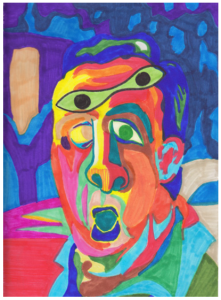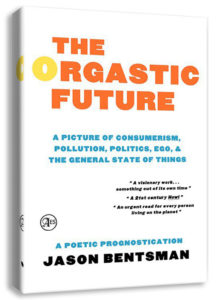
J.
Some impulse compelled me to begin reading Big Sur by Jack Kerouac— probably because I instinctively felt it would be in line with what I’m writing at the moment. I don’t have the book here, so read the first few chapters online. Tonight I watched the movie adaptation that was made several years ago. It didn’t get good reviews, and I understand why, but I definitely got something out of it; I’d say that of the handful of movies made about his writing and the Beats, it probably captures the feeling and truth of their relationships, that time, and his writing the best. Except, it’s 15 years after On The Road, and chronicles his alcoholic haze and delirium tremens and utter dissipation. The plot is inadvertently clever— he’s in what is probably one of the most beautiful places in the Universe, and all he can see is decay, death, awfulness, and suffering, and is gradually killing himself through drink and pessimism and becoming borderline psychotic… When one is 26 years old and hitchhiking around the country, sleeping rough, and throwing one’s last handful of money into the ocean, it’s vibrant and romantic; when one is 40, haggard and grizzled, not so much… The book/film also inadvertently chronicle the deep cultural changes that took place in the US after 15 years. He tries to hitchhike back to San Francisco from Lawrence Ferlinghetti’s cabin in Big Sur, but by then hitchhiking is no longer quite in vogue, the media has scared people too much, and on top of it he looks like a world-weary, out-of-shape, wizened wastrel, sticking his thumb out, and nobody will stop the entire day to pick him up, so he ends up walking back almost the entire way. Meanwhile, many of his friends have gone on to take ‘sensible’ positions in society… He does seem to have made some money from his writings— apparently, enough to live on simply— but spends most of it on alcohol, and at times loaning or giving it to Neal Cassady (when he’s visiting the San Francisco area)… And yet, the kind of relationships he has with his male and female friends, as portrayed in this book and movie, are still more informal, easy, earnest, forthright, magnanimous, freewheeling, and generous than one can hardly ever find in contemporary America nowadays (which is eminently sad). And people are more easy, friendship-wise, affection-wise, sex-wise. (Although of course these are the countercultural elements. Mad Men, for instance, often shows a different side of the coin.) And the environment is much more pristine, less polluted (also sad)… It struck me that a dissolute character such as he had become could no longer quite gain respect even in the America of there-and-then (1962). He had become something like a tragic French dissipated, disconsolate, artistic type, outwardly cynical, but with a core of gold— something like Celine, or one of those grizzled male chanson singers, and at that point probably only would have truly been lauded for these qualities (mostly wrongly, of course, but there is something partly noble about this deep-sightedness into the suffering of life and stoic suffering and self-destruction) only in a country like France, or Russia… A number of times t/o the film (and I would imagine in the book, as most of the narration and dialogue is faithfully taken from it), he says that everything he wrote about Zen, or the Absolute, just feels like empty words. It was just braggadocio, romantic philosophizing and posturing, wordplay, and he doesn’t understand or feel any of it. He’s not sure he ever did. The woman whom Neal Cassady sets him up with quotes something about the Absolute, and he says he doesn’t understand what she’s talking about. She says, Why, you yourself wrote that. He says he really didn’t know what it meant then— maybe he was trying to convince himself of something— and doesn’t understand it now… I recall William Butler Yeats writing a similar thing later in life: Everything Mystical he wrote was a kind of self-deluding, trying to account for the tragedy of impermanence, but on final account likely a nice story he had told himself so he wouldn’t be afraid… It struck me that Kerouac, F. Scott Fitzgerald, and Kafka have a lot in common psychologically. All saw (or felt) deeply into the darkness and suffering of existence, none of them could handle it. All felt estranged from their general milieu and the superficialities therein (as most artists do, or at least have historically, to some extent). All longed to return to the vibrancy of youth— the insouciance, the vibrancy of experience (even if partial or illusory)— and the ‘pristineness’ and protectiveness of childhood— wrapped in the snug wooly ignorance and warmth of childhood, protected from the elements and harsh realties of life, awash in imagination. All subconsciously submitted to their fears and sufferings and killed themselves— Fitzgerald and Kerouac through drink and profligacy, Kafka by developing in all likelihood what was a psychosomatic illness, or creating the external conditions for the illness. Kafka was at once the weakest and strongest of them, and hence overall (though not in some particulars) the deepest and most resplendent. He was so weak that he couldn’t even dissipate himself, but had to subconsciously will himself to develop an illness. His ego-sense so traumatized that he felt himself a tiny vermin unfit to have been born. He also had the most difficult childhood of the three by far— and yet, one can tell he longed to return to the general childhood state. As we all do, to some extent… I doubt whether most teenagers and 20-somethings who read Kerouac’s earlier books know much about his later, Tolstoyan (who chronicled and saw into all facets and stages of worldly life) descents and struggles. He was one who felt more than thought. Perhaps through that ‘Dark Night of the Soul’ he was truly coming to a Siddharthan awareness of existence, and if he had not decimated himself through drink into borderline insanity, had he come through the other side (as Dostoevsky did after the imprisonment and firing squad), he would have developed a more trenchant and Tolstoyan view of existence. But alas. He did go to Paris, wrote a terrible, almost unreadable hodgepodge of gibberish about it, a few more such books— and ‘the rest,’ well… We can only hope that our conditions are a little more favorable. God bless you, and God rest you in peace, Jack Kerouac.
– Jan 2016




Leave a Reply